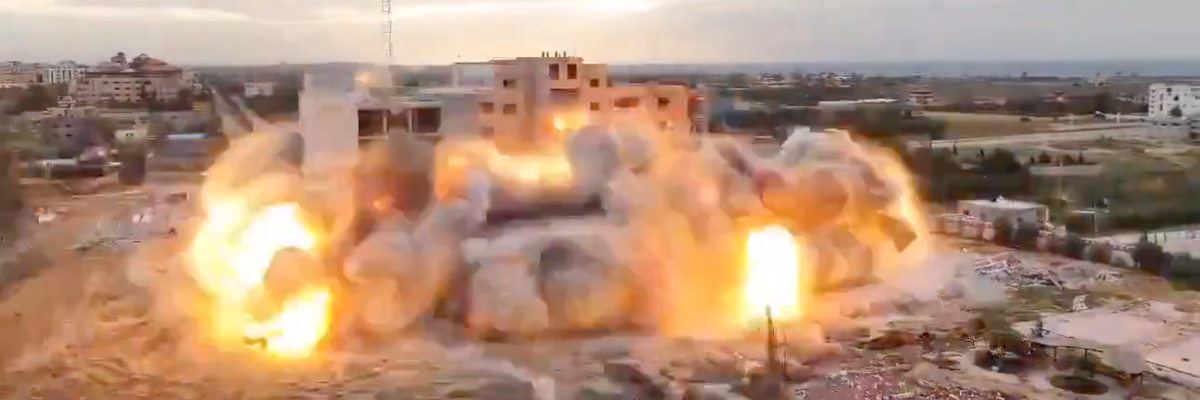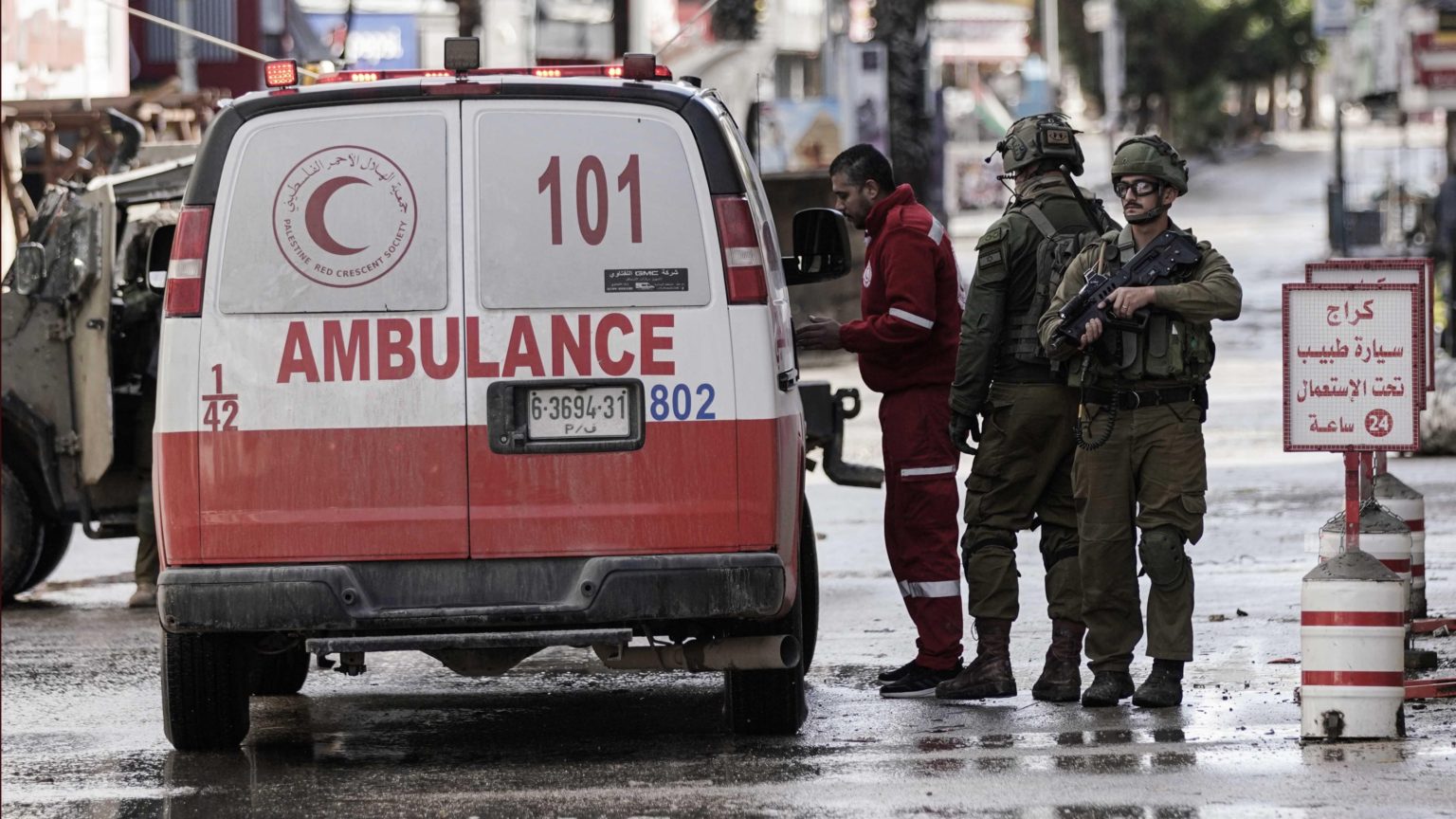IDF Let Israeli Civilians Film Torture of Palestinian Detainees: Report
Original article by BRETT WILKINS republished from Common Dreams under Creative Commons (CC BY-NC-ND 3.0).

“This is beyond military occupation, apartheid, economic exploitation, and all the rest,” asserted one journalist. “There is something extremely sickening happening here.”
Israel Defense Forces officers brought Israeli civilians into detention centers and allowed them to watch and film Palestinian prisoners being tortured, according to survivor testimonies published this week by the Geneva-based Euro-Mediterranean Human Rights Monitor.
Prisoners held at detention centers in Zikim on the northern border of the Gaza Strip and at a site in southern Israel affiliated with Naqab Prison “told Euro-Med Monitor that the Israeli soldiers had purposefully presented them before Israeli civilians, falsely claiming that they were fighters affiliated with Palestinian armed factions and that they had taken part in the October 7 attack on Israeli towns,” the group said.
The former detainees said groups of 10-20 Israeli civilians were brought in and allowed to record torture sessions in which the men, stripped nearly naked, were beaten with metal batons, electrocuted, and had hot water poured over their heads. The ex-prisoners said some of the Israelis laughed while filming their torture.
“I was arrested at the checkpoint set up near the Kuwait roundabout, which separates Gaza City from the central region, as part of the Israeli random arrest campaigns. I was subjected to all types of torture and abuse for approximately 52 days,” 43-year-old Omar Abu Mudallala told Euro-Med Monitor, adding that his IDF captors “brought Israeli civilians to watch our nude torture.”
Abu Mudallala continued:
The Israeli army brought a number of Israeli civilians into our detention centers while beating us and telling them, “These are Hamas terrorists who killed you and raped your women on 7 October,” while the Israeli civilians were filming us being beaten, abused, and tortured while making fun of us.
This happened five times while I was being held. The first time was in Barkasat Zikim, where we were blindfolded. However, one of the detainees who speaks Hebrew told us that the soldiers were interacting with Israeli civilians claiming that we were armed fighters. The other four incidents took place in the Negev detention facility, where successive Israeli groups were taken inside tents to witness our abuse and record the torture methods we were subjected to without allowing us to speak or interact with them. Since we were not wearing blindfolds at the time, I saw them all four times with my own eyes.
“One of the detainees who speaks Hebrew tried to explain to the Israeli civilians that we are civilians and we had nothing to do with any military activities, but that also did not help,” Abu Mudallala added. “However, he was subjected to severe psychological and physical torture. It was really shameful to bring Israeli citizens to record our torture for being allegedly involved in killing and rape incidents.”
Another former prisoner, identified only as 42-year-old D.H., told Euro-Med Monitor that “Israeli civilians were brought to witness the abuse and torture that we were subjected to, which the army deliberately began when they were present.”
“These Israelis sometimes brought their dogs with them to bark at us,” he added. “They also took pictures of us and posted them on social media apps, particularly TikTok, with the soldiers themselves doing the same.”
Euro-Med Monitor asserted that “the vast majority of those arrested from within the Gaza Strip have been subjected to arbitrary detention without being charged or brought to justice, with no legal measures taken against them.”
“They are also denied a fair trial and are subjected to forced disappearance, torture, and inhumane treatment,” the group added. “Israeli practices against Palestinian detainees are blatant violations of international conventions and standards, particularly the 1949 Fourth Geneva Convention, which forbids an occupying authority from transferring prisoners from the occupied territory to detention facilities on its territory, as well as torturing, attacking, or otherwise degrading the human dignity of those detained.”
Israeli forces, with their long history of torturing Palestinian prisoners, have been accused during the current war on Gaza of torturing civilian detainees before executing them. Photos and videos of Israeli troops abusing Palestinians—both alive and dead—have been published by perpetrators on social media. Human rights defenders point to such images and their proud display as evidence of Israeli genocide in a war in which more than 100,000 Palestinians have been killed, maimed, or gone missing.
The International Court of Justice found last month in a preliminary ruling that Israel is “plausibly” committing genocide in Gaza, while ordering Israeli forces to “take all measures” to avoid perpetrating genocidal acts.
Original article by BRETT WILKINS republished from Common Dreams under Creative Commons (CC BY-NC-ND 3.0).




